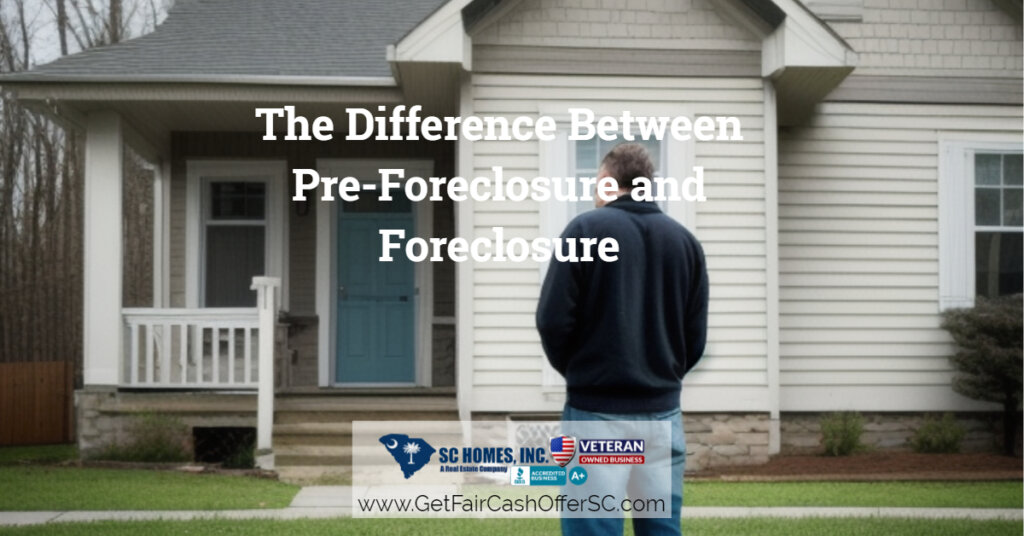
Within the real estate industry, the terms “foreclosure” and “preforeclosure” are frequently employed. Although these phrases may appear similar, they possess distinct definitions and carry diverse consequences for homeowners and prospective buyers alike.
What is Foreclosure?
Foreclosure is a legal process that occurs when a homeowner is unable to make their mortgage payments. When a homeowner falls behind on their mortgage payments, the lender can initiate foreclosure proceedings, which can ultimately result in the loss of the home. Foreclosure is a serious event that can have long-lasting consequences for homeowners, including damage to their credit score and difficulty obtaining future loans.
What is Preforeclosure?
Preforeclosure, on the other hand, is a period of time before foreclosure proceedings have begun. During preforeclosure, the homeowner has fallen behind on their mortgage payments, but the lender has not yet initiated the foreclosure process. Preforeclosure can give homeowners an opportunity to work with their lender to find a solution to their financial difficulties, such as a loan modification or a short sale.
The Timeline
One of the main differences between foreclosure and preforeclosure is the timeline. Foreclosure is a lengthy legal process that can take months or even years to complete. During this time, the homeowner may have the opportunity to stay in the home and make arrangements to catch up on their mortgage payments. However, once the foreclosure process is complete, the homeowner will be forced to vacate the property.
Preforeclosure, on the other hand, is a much shorter period of time. Typically, preforeclosure lasts only a few months before the lender initiates foreclosure proceedings. During this time, the homeowner may have the opportunity to work with their lender to find a solution to their financial difficulties. However, if a solution is not found, the homeowner will still be at risk of losing their home.
Long Term Effects
Another key difference between foreclosure and preforeclosure is the impact on the homeowner’s credit score. Foreclosure is a serious event that can have a significant negative impact on a homeowner’s credit score. This can make it difficult to obtain future loans or credit, and can also result in higher interest rates and fees.
Preforeclosure, on the other hand, may have less of an impact on the homeowner’s credit score. While falling behind on mortgage payments can still have a negative effect on credit, working with the lender to find a solution during preforeclosure can help mitigate some of the damage.
Buying Properties in Foreclosure or Preforeclosure
For potential buyers, there are also important differences between foreclosure and preforeclosure. Foreclosed properties are typically sold at auction, and buyers must be prepared to pay cash or obtain financing quickly in order to purchase the property. Additionally, buyers may need to deal with issues such as liens, unpaid taxes, or evictions.
Preforeclosed properties, on the other hand, may be available for sale through a short sale. During a short sale, the homeowner sells the property for less than the amount owed on the mortgage, and the lender agrees to accept the proceeds as payment in full. Short sales can be a good option for buyers who are looking for a deal, but they can also be time-consuming and unpredictable.
Foreclosure and preforeclosure are two distinct terms that have different implications for homeowners and potential buyers. Foreclosure is a legal process that can result in the loss of a home and can have long-lasting negative effects on a homeowner’s credit score.
Preforeclosure, on the other hand, is a period of time before foreclosure proceedings have begun that can give homeowners an opportunity to work with their lender to find a solution to their financial difficulties. For potential buyers, foreclosed properties are typically sold at auction, while pre-foreclosed properties may be available for sale through a short sale. Understanding the differences between foreclosure and preforeclosure can help homeowners and buyers make informed decisions about their real estate options.
What Are My Options?
To stop your house from going into foreclosure, you’ll either need to get rid of the property or find a way to increase your income so you can better afford the mortgage. Frankly, owning your home shouldn’t feel like a struggle each month. You should be able to feel confident in the ownership of your home. If your mortgage has become too much to handle, it may be time for you to find an alternate solution.
Assisting with Foreclosure: How South Carolina Homes Provides Support
When faced with the burden of overwhelming monthly mortgage payments, South Carolina Homes offers a solution by purchasing your property outright. We present you with a fair offer and finalize the property’s acquisition at your convenience. At South Carolina Homes, our mission is to help homeowners in the local area escape their challenging circumstances permanently. If you find yourself struggling to maintain a house that has become unaffordable, contact our team today to explore the available options. We are here to address any inquiries you may have regarding the process. Call us at 843 881 7171 to get started.
